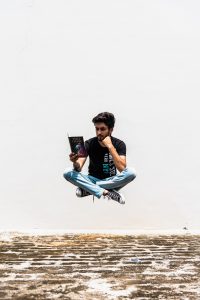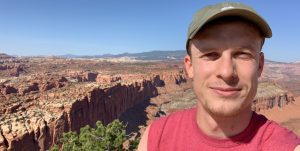
By Colorado Review Editorial Assistant Jack Berning
For many of us, we find ourselves in a time and space of great solitude. We are distanced from those people and things we love, those people and things we do not love, and everything in between. We are reminded, perhaps, that when all else has left, the self does not.
I live alone in Fort Collins. When I signed my lease, I certainly envisioned myself as a solitary poet. Spending my days with books and the blank page—free of the burden of social interactions—was always the plan. And yet, as life so often offers, I find myself in a novel, unforeseen extreme. What I thought was aloneness has been amplified to a physical isolation unlike anything that could have been conjured by the imagination.
And with this isolation, all the responsibilities and ‘realities’ of my former life are beginning to present themselves as distractions. What I thought were necessary activities for my well-being are in fact expendable, malleable, possible to go without.
So poetry. We wonder what it can be, if anything, for us. Some days we feel like Marianne Moore in her poem Poetry: “I, too, dislike it—there are things that are important beyond all this fiddle.” We wonder if there is anything in the art form that can save us, even for a moment.
It feels that in these times, I have been so wondrously reminded of why I fell in love with poetry. While perhaps poetry is a “fiddle” or a distraction, just like the things we filled our previous lives with, it seems that this particular fiddle possesses something of infinitude. The art, to me, has the potential to exist outside of time and place and even selfhood, where we are permitted to escape into a sublime realm of truth untouched by circumstance.
And when we find the poems that bring us to this place, we find ourselves connected to the greater message, the periphery of gorgeous nonsense, that the art form provides. We are united by poems not only to each other, but to our universe and its great mystery. We are reminded that we know nothing, and in that nothingness, perhaps discover an unexpected refuge.
I do not know what utilitarian value a poem holds for the human soul. It certainly won’t fix the economy, open our coffee shops, or cut us a paycheck. But it reminds us that we are temporary, fleeting, mystical.
It reminds us that we are alive.

Jack Berning is an MFA candidate in poetry. He currently lives alone in Fort Collins, passing his days reading, writing, and going on too-long bike rides.